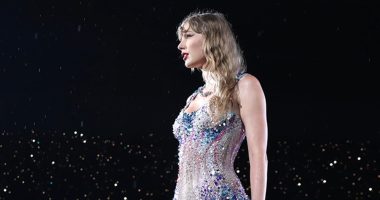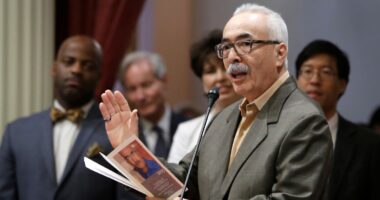
Eli Lilly and Co. reported a 41% rise in its quarterly profit on Friday, boosted by strong sales of its Covid-19 antibody treatment and higher demand for its diabetes drugs.
The antibody drug, bamlanivimab, brought in world-wide revenue of $871.2 million, contributing much of the 22% revenue growth the company recorded for the fourth quarter of 2020.
The company’s profit jumped to $2.12 billion, or $2.32 a share, compared with $1.5 billion, or $1.64 a share, in the same quarter a year earlier.
Eli Lilly shares rose 4.7% in pre-market trading after closing Thursday at $210.12. The company’s stock has moved higher in the second half of January as studies have shown promising results for its products aimed at treating and preventing Covid-19.
Bamlanivimab, which has been approved by the Food and Drug Administration on an emergency basis for treating mild to moderate Covid-19 in high-risk patients, complements vaccines while inoculations increase.
Last week, Eli Lilly posted results from a study showing that bamlanivimab reduced the risk of staff and residents at nursing homes getting sick with Covid-19 by about 57% compared with a placebo. This week, the company cited results from another study showing that the drug plus another Eli Lilly product, etesevimab, reduced hospitalizations and deaths by 70% in high-risk patients recently diagnosed with Covid-19.
The drugmaker said it has already delivered 950,000 doses of bamlanivimab under an agreement with the U.S. government, and plans to deliver an additional 500,000 doses by the end of March.
Lilly Chief Executive David Ricks said in an interview that while the revenue from bamlanivimab is welcome, it doesn’t come with a huge profit margin because Lilly spent about $800 million combined for research, development and manufacturing on its antibody efforts last year.
“We’re mostly focused on how to get it into arms,” Mr. Ricks said. Uptake of the antibody hasn’t been as high as expected, partly due to physicians’ concerns about the limited evidence of its benefit when it was first authorized in November.
Eli Lilly’s revenue excluding bamlanivimab grew 7% in the latest quarter, led by sales of drugs for diabetes.
Sales of Trulicity, a diabetes drug, climbed 24% year over year to $1.5 billion. Revenue for Jardiance, which also treats diabetes, was 17% higher at $313.6 million.
Revenue was $7.44 billion, compared with $6.11 billion in the fourth quarter of 2019. Analysts had forecast revenue of $7.27 billion. Excluding one-time items, Eli Lilly’s adjusted profit was $2.75 a share. Analysts surveyed by FactSet had forecast an adjusted profit of $2.37 a share.
—Peter Loftus contributed to this article.
Write to Matt Grossman at [email protected]
Copyright ©2020 Dow Jones & Company, Inc. All Rights Reserved. 87990cbe856818d5eddac44c7b1cdeb8









